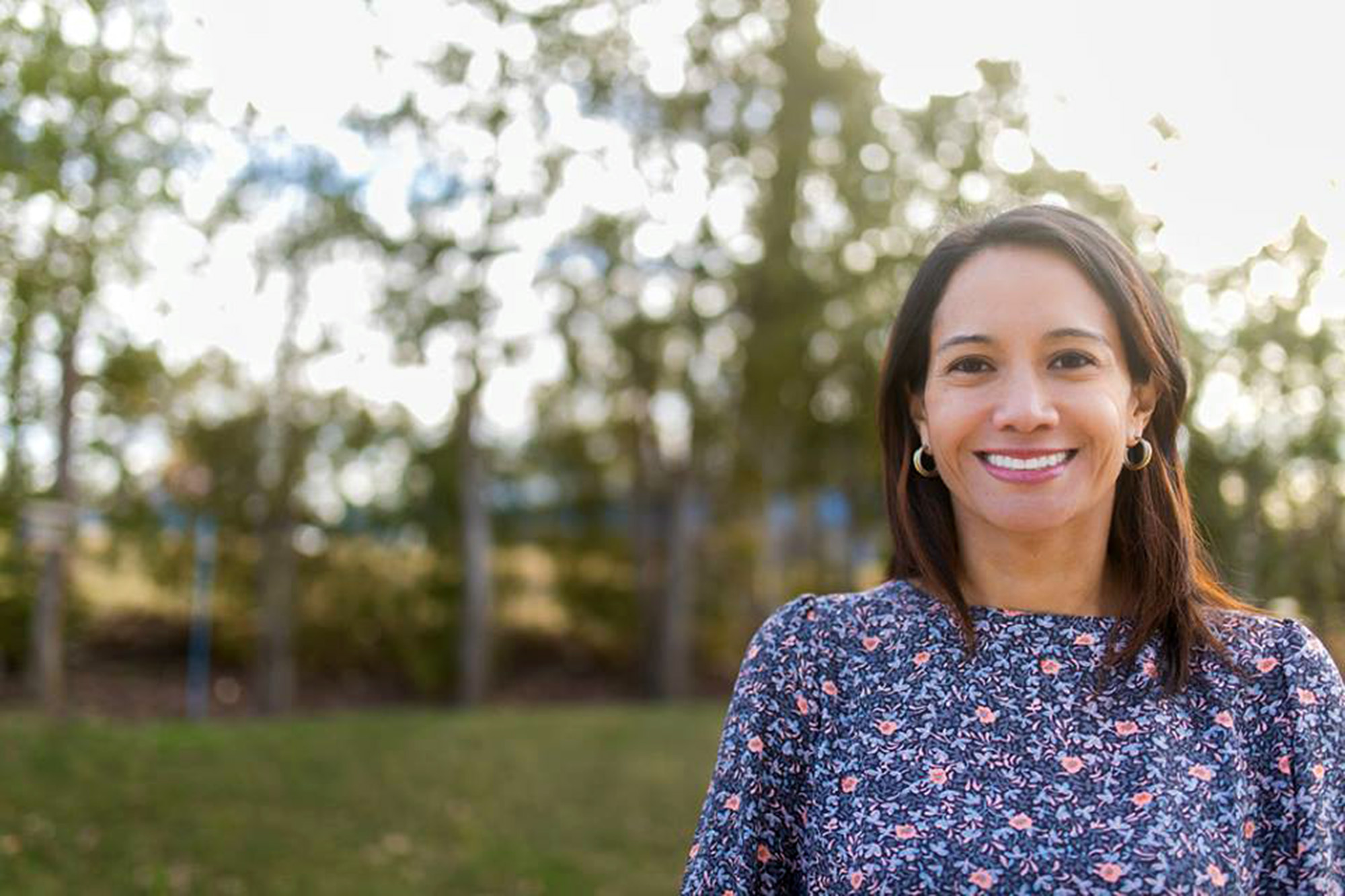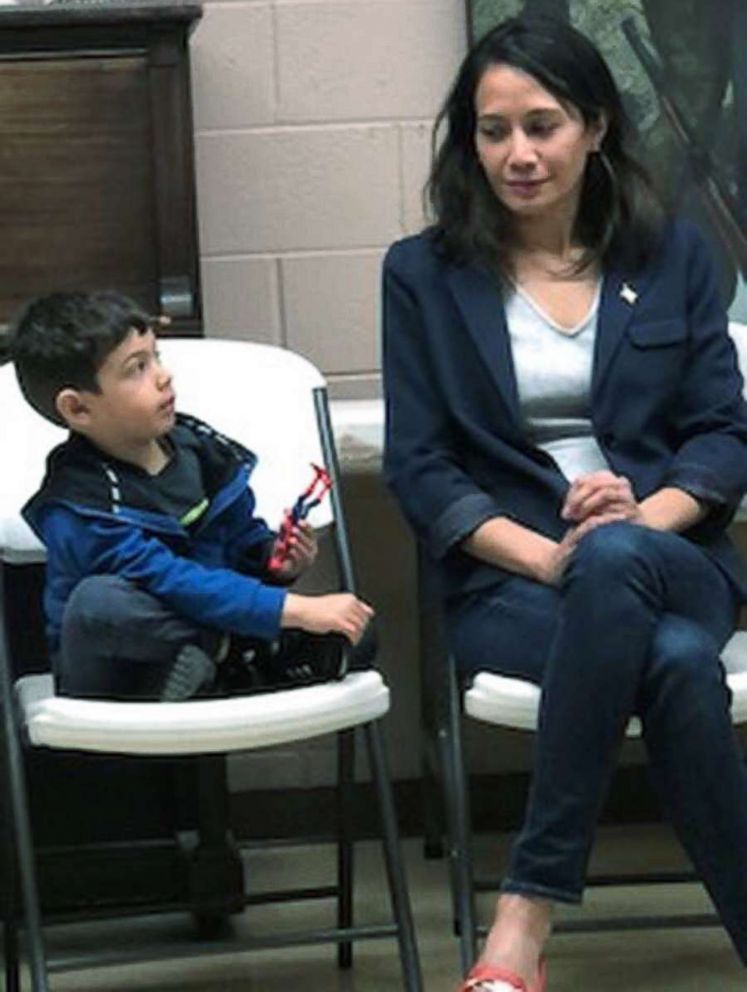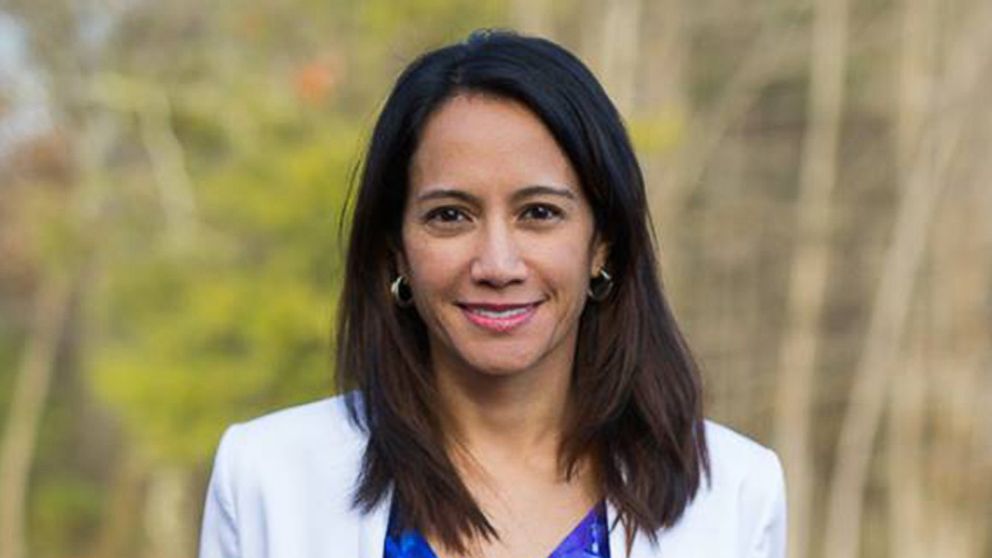West Virginia House candidate 'got tired of watching' opioid crisis ravage communities
Ayne Amjad works at the nexus of the opioid crisis and environmental hazards which residents say have caused their friends and neighbors to develop cancer.
The problem is felt especially acutely in the rural parts of West Virginia’s 3rd Congressional District where Amjad — a somewhat accidental politician — saw patients every day struggling with the effects of the epidemic, high rates of cancer (sometimes explained away by some experts as lifestyle causes) and the high cost of healthcare.
"I just got tired of watching things go in a direction I didn’t like and I realized the only way you can change things is to get into politics," she told ABC News, adding later. “I don’t think we handle it properly, the people making the decisions for drugs are not even healthcare professionals which drives me insane,” she said.
Amjad is one of seven Republicans running for the U.S. House seat held by Rep. Evan Jenkins in the primary election on Tuesday. Jenkins is running in the Republican Senate primary to challenge Democratic incumbent Sen. Joe Manchin.
Amjad, 40, grew up in Beckley, West Virginia, population 17,000, and has been practicing medicine in the area for eight years.
During that time she has tried to raise awareness about addiction and drug problems in her area with education programs and funded needle exchange programs after increased rates of Hepatitis C, but she said there is still a strong stigma around drug addiction and she realized she could make a bigger change in politics than as a private physician.

In one example, she said that the state closed clinics that distributed pain medications in an effort to stop the abuse of opioids, but that she knows patients that would then buy heroin off the street.
West Virginia had the highest rate of deaths related to opioid overdose in 2016, according to the National Institute on Drug Abuse.
Another problem with health care in the state is that residents of rural areas or small towns don't have easy access to doctors, and Amjad said many doctors don't want to stay in the state because there aren't a lot of other jobs or good schools for their families.
Then there are the environmentally-related health issues, a stark reminder of the state's heavy reliance on coal mining and manufacturing.
In one area of the district, a town called Minden, residents have been trying to get attention to the cancer rates that they say are caused by chemicals in the soil and the groundwater. Amjad's father was working to collect more information on the contamination to get health care and more resources from the government to clean up the area.
He died before his work was completed.

Amjad said that the state's cancer registry is often incomplete and that it has been difficult to research the situation in Minden because it is such a small town. Minden had a population of 250 people in the 2010 census.
The Environmental Protection Agency has conducted testing at the site but said in March that the levels of chemicals known as PCB's were not high enough to be a threat to human health. PCB's are considered likely to cause cancer in humans, according to the EPA's website.
Amjad said she hopes to continue her father's work in Minden to improve what the state knows about cancer rates, get some help for residents in the area, and maybe work to clean up parts of the state to get more revenue from tourism.
"I think most of the problems happen in small tiny towns that don't have the influence to get things done," she said.
She describes herself as a moderate Republican. She said she registered as a Democrat when she was 18 because her parents were Democrats but gradually realized that she fell somewhere in between the two parties.
The majority of voters in West Virginia voted for Donald Trump in the 2016 election and she said she feels it's because both Democrats and Republicans wanted a change.
Amjad wants to approach her congressional career as she does her medical practice.
"Because of my career, I've been trained to listen to people find a solution with that person, that's what politics should be," she said. "I'm not there to make decisions based on what I like. At the end of the day, the patient is the one telling me what they want to do."
WATCH LIVE ON TUESDAY: You can watch livestreaming coverage of all the primary action starting at 7 p.m. ET on ABCNews.com or on the ABC News app available on the Apple App Store, Google Play Store, Apple TV App Store, and Roku Channel Store.
Don’t forget to sign up for Midterm Elections Alerts to get more coverage of this year’s election season from our powerhouse politics team.




